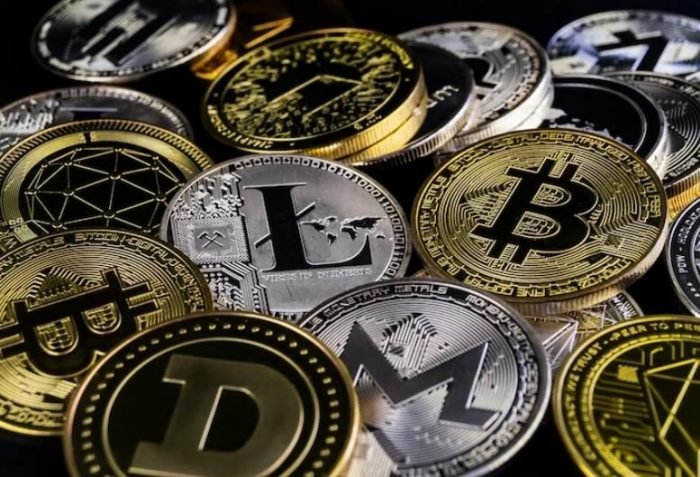Overwhelmed by the dominance of Bitcoin and Ethereum in the cryptocurrency market? It’s time to explore the world of altcoins. With a plethora of options offering unique features and purposes, altcoins present a versatile landscape for crypto investors like yourself. From utility tokens to DeFi tokens, each altcoin brings something different to the table. In this blog post, we will explore the rise of altcoins, their potential for growth, stability, and innovation, and how you can evaluate them for investment to enhance your crypto portfolio. Let’s uncover the world of alternative cryptocurrencies together.
Key Takeaways:
- Altcoins Diversity: Altcoins offer a wide range of functions and purposes, including utility tokens, security tokens, stablecoins, governance tokens, privacy coins, DeFi tokens, meme coins, and platform tokens.
- Investment Potential: Diversifying investments into altcoins can provide growth potential, stability, and innovation in a crypto portfolio, but requires thorough research on technology, team expertise, market analysis, tokenomics, community support, and regulatory environment.
- Risk Management: Risks in altcoin investing such as high volatility, lower liquidity, and market sentiment sensitivity can be mitigated through strategic portfolio allocation, diversification, regular market analysis, and leveraging tools like Intelligent Portfolios by platforms like Kriptomat.
Overview of Altcoins
Before stepping into the world of altcoins, it is important to understand that they are alternative cryptocurrencies to Bitcoin and Ethereum, offering a wide range of functions and purposes. Altcoins serve different use cases, such as utility tokens, security tokens, stablecoins, governance tokens, privacy coins, DeFi tokens, meme coins, and platform tokens.
Types of Altcoins
With altcoins, you have the opportunity to explore a variety of crypto assets tailored to specific needs and interests. Here are the different types of altcoins you can consider adding to your portfolio:
| Utility Tokens | For accessing a specific product or service within a blockchain ecosystem |
| Security Tokens | Represent ownership of an asset, like real estate or company shares |
| Stablecoins | Designed to minimize price volatility by pegging to a stable asset |
| Governance Tokens | Used for decision-making and voting on changes within a protocol |
| Privacy Coins | Focus on enhancing anonymity and confidentiality in transactions |
Any diversification strategy should take into account the unique features and potential of each type of altcoin before making investment decisions.

Benefits of Investing in Altcoins
To optimize your crypto portfolio, consider the advantages of investing in altcoins. Altcoins offer growth potential, stability, and innovation that can complement your existing Bitcoin and Ethereum holdings. Diversifying your investments into altcoins can help mitigate risks and enhance overall performance.
Another benefit of investing in altcoins is the opportunity to participate in specialized sectors of the cryptocurrency market. Whether you are interested in decentralized finance (DeFi), privacy-focused coins, or meme coins with viral potential, altcoins provide a gateway to explore new trends and opportunities in the evolving crypto landscape.
Evaluating Altcoins for Investment
Even with the multitude of altcoins available in the cryptocurrency market, it is crucial to carefully evaluate each option before making investment decisions. Your research criteria should encompass various aspects such as technology, team expertise, market analysis, tokenomics, community support, and regulatory environment. Understanding the technology behind the altcoin, the expertise of the development team, and the tokenomics structure can provide valuable insights into the potential growth and stability of the investment.
Research Criteria
Researching altcoins involves delving into the specifics of each cryptocurrency beyond just their market value. By assessing elements like the technology powering the altcoin, the expertise of the team behind its development, market trends, tokenomics structure, community backing, and regulatory compliance, you can make informed decisions about which altcoins have the potential for long-term growth in your investment portfolio.
Risk Mitigation Strategies
Mitigation strategies play a vital role in managing the risks associated with altcoin investments. By strategically allocating your portfolio, diversifying your investments across different types of altcoins, conducting regular market analysis, and utilizing tools like Intelligent Portfolios by platforms such as Kriptomat, you can mitigate the risks of high volatility, lower liquidity, and market sentiment sensitivity commonly associated with altcoin investing.
This proactive approach allows you to navigate the complexities of the cryptocurrency market with a more secure and informed investment strategy, reducing the potential impact of market fluctuations on your altcoin investments.
To wrap up
The rise of altcoins offers investors like you opportunities to explore the alternative cryptocurrency market. Diversify your portfolio with altcoins for potential growth, stability, and innovation beyond Bitcoin and Ethereum. Approach altcoin investing with caution by researching the technology, team expertise, market analysis, tokenomics, community engagement, and regulatory environment. Remember the risks of high volatility, lower liquidity, and market sentiment sensitivity. Mitigate risks with strategic allocation, diversification, regular analysis, and tools like Intelligent Portfolios on platforms like Kriptomat. Stay informed, cautious, and proactive for success in the altcoin market.
FAQ
Q: What are altcoins?
A: Altcoins are alternative cryptocurrencies to Bitcoin and Ethereum that offer unique features and purposes, such as utility tokens, security tokens, stablecoins, governance tokens, privacy coins, DeFi tokens, meme coins, and platform tokens.
Q: Why should I consider investing in altcoins?
A: Investing in altcoins can enhance a crypto portfolio by providing growth potential, stability, and innovation. Diversifying investments into altcoins allows for exposure to various types of cryptocurrencies and the potential for higher returns.
Q: How can I evaluate altcoins for investment?
A: When evaluating altcoins for investment, it is vital to research technology, team expertise, market analysis, tokenomics, community support, and regulatory environment. By conducting thorough research and analysis, investors can make informed decisions about which altcoins to include in their portfolio.
